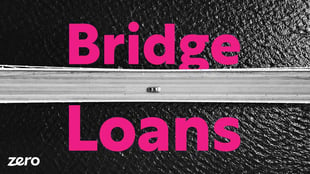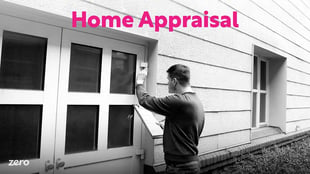How to Close on Your New House, Quickly

If you’ve already gone through the lengthy process of writing offers, securing financing, and arranging inspections for your potential property, you’re probably ready to be done with the entire process. The average closing time for a house is 60 days after signing a purchase contract. However, it’s possible to speed up this process and move into your home a lot faster
Read our beginners' guide to the homebuying process here.
Why You May Want to Close Fast on Your Home
The waiting period between accepting an offer and officially closing on a house can seem like it never ends, and that’s not without reason. Closing on a house involves a lot of moving parts from a lot of different people. By getting ahead and making sure there is no unnecessary delay, you can speed up the process for everyone involved.
Are There Risks to Closing Early on Your Home?
Rushing through any process can cause a lot of stress, especially when it comes to closing on a home. There’s a lot of paperwork involved with the closing process, and it’s very important that all of it is done thoroughly with due diligence.
Most lenders will require borrowers to obtain title insurance to make sure that the legal ownership of the property is clear and definitive and that there are no legal disputes on the property. Scheduling a home inspection is also a typical lender requirement to identify any underlying issues. These items are required by most lenders before they can move forward with your loan application and any delay will only slow down your loan approval process.
What Causes Delays When Closing on a House?
A lot happens during the closing process, but whether it gets done or not depends on the communication between different parties. Here are some of the issues that often arise and ultimately slow down the process.
Buyer Financing
It will take your lender a while to gather the official details of your loan. The lender is responsible for underwriting your loan and researching every important aspect of your financial history, including your income statements, debt-to-income (DTI) ratio, your tax returns, and your credit score
We wrote a blog explaining how to choose the best mortgage lender, read it here.
Changes to Your Credit
If you’ve recently opened a line of credit, things can become confusing for your lender. Opening a new line of credit can drop your credit score, which requires your lender to conduct additional research and check facts. If your financial situation changes significantly prior to closing but after you receive a pre-approval letter, the lender may have to reassess your loan options, which will push your official closing date even further back.
If you get pre-approved, most lenders recommend not making any large changes to your financial situation. It’s not the right time to open a new credit card, make a large purchase, or take out another loan.
Keeping your finances the same ensures that you know how much you can afford to put down on a house. Plus, the processing time for the loan will be a lot faster and more efficient.
Low Appraisal
During closing, your lender will often schedule an appraisal. If the appraiser finds that the value of the home is much lower than what you are offering, your lender will have to go back and reassess if there is another loan option for you or if you would like to go forward with the amount already approved and supplement the difference with your own money.
However, the low appraisal might be due to issues or defects in the home you weren’t aware of, which may change your decision about whether or not you want to move forward altogether.
Tips for Closing Quickly on a Home
Although the closing process depends on a lot of different parties coming together, there are still things that you, the purchaser, can do to help expedite the process. Here are some of our tips for closing quickly on a home.
Get Pre-approved to Speed up Closing Time
Like we mentioned, it takes time for lenders to process all of your financial information along with the records on the property you’d like to buy. Getting pre-approved before you begin looking for a property is very helpful to lenders because it provides them with an overall look at your financial history. From there, they can estimate the loan amount that you are eligible to receive
What's the difference between pre-qualification and pre-approval? If you don't know, click here!
Know Your Required Paperwork
When you go to buy a house, you will have to provide a lot of paperwork to a lot of different people. To prepare for this process, request copies of your information or print records yourself.
This includes your bank statements, credit history, credit score, income verification, social security number, past addresses, paystubs, tax returns, and information regarding other loans taken out in your name.
Schedule the Inspection as Soon as Possible
A home inspection is one of the most important parts of the closing process. During an inspection, a licensed professional will go through the property and walk around the outside of the home to provide you with an official report of the home’s current condition./p>
The report will include details regarding any damages, necessary repairs, and the state of features such as the structural integrity, gas, water lines, and HVAC systems.
If the inspector discovers that certain areas of the home need repair, you might want to go back to the seller and ask for a comparable deduction off the selling price or you can consider an agreement to allow the seller to make the repair as a condition to be completed in order to close. This will help you ensure that you are paying what the home is worth.
However, seeking a lower price will further add to the timeline and draw out the closing process. Scheduling an inspection within the first few days of the closing process will ensure that you’re made aware of concerns and necessary repairs as soon as possible.
Our Mortgage Learning Center features blogs on a wide range of mortgage and refinancing topics.
Closing Quickly on a New Home
By being proactive about the parts of the closing that you can control, you can expedite the process and hopefully move into your home faster than originally planned. However, it’s important not to rush past important details like the financial information required by your lender or proper home inspections.
It’s all about being prepared by having documentation on hand. A pre-approval will help everything move more smoothly, ensuring that you can close in a reasonable amount of time and start living in your new home as soon as possible.
Lock in Your Rate Today!
This page last updated: October 11, 2022
Read more on this topic below.

When you buy a house and start making mortgage payments, your payment consists of four different components, known...

If you have gone through the pre-approval process but need to take a deeper dive into how much house to buy,...

The vast majority of mortgage loans require you to put down a certain percentage of the selling price upfront....

Whether you’re a first-time buyer or you’ve purchased a home before, you’ve likely heard of a homeowner’s association....

There’s a lot of expenses to keep in mind when you’re thinking about buying a home. Between the price of the home, property taxes, your mortgage...

Conventional loans are mortgages offered by private lenders, banks, and institutions that are not backed by the government. Unlike FHA, USDA,...

Some homebuyers refuse to purchase a property if it is part of a property owner association. On the...

Research indicates that 58% of homeowners in HOA communities and single-family homes pay an average monthly fee...

Private mortgage insurance is something millions of homeowners pay for each year. However, this type of insurance does not protect

When you first set out to buy a home, it can feel like you’re taking an exam you forgot to study for. You have to make quick...

When looking to refinance or buy a house, the pre-qualified vs pre-approved mortgage debate can be...

It’s likely that your mortgage loan will be the largest loan you have during your lifetime. Mortgages are not a one size...

For many people, owning a home is part of the American dream. To make this dream a reality, most people will take out a...

Whenever you’re looking to buy a house, you’ll quickly realize there are a lot of fees associated with obtaining a mortgage....

A bridge loan is a short-term loan a borrower may use while a more long-term financing contract is finalized. Bridge...

A loan estimate is crucial to obtain when looking for a loan. This estimate not only gives you the details of a mortgage but also compares offers...

There are many moving parts and various people you’ll deal with throughout the homebuying process....

If you’re looking to buy a house, and do not have a mountain of cash saved up, you’ll need to consider getting a mortgage to help you finance this...

If you find a property that you’re highly interested in buying but are concerned that the seller might choose...

Buying a home? You’ll likely need to get it appraised before you receive the clear to close. If you’re wondering...

If you’re an active service member, a veteran, or the surviving spouse of a veteran, and you want to ...

There’s no doubt, COVID-19 changed the world in countless ways and took us all by surprise. From an...

Whenever you are borrowing money, whether it’s for a new mortgage, a refinance, credit card, or car loan, you’ll hear...

If you’re new to buying a home, you probably have quickly realized the overwhelming amount of options there...

One of the most important steps to buying a home is deciding on a mortgage loan and deciding on a loan involves settling on a good...

First time home buyers are often surprised when they learn about all of the expenses that are associated with ...

Purchasing real estate is not as simple as finding the right home, submitting an offer, and signing the closing paperwork; many...
